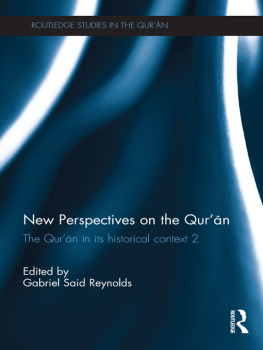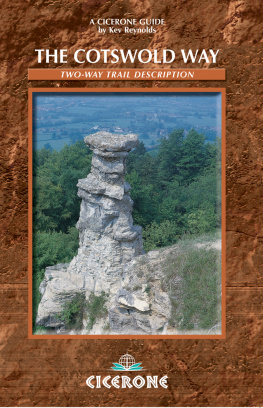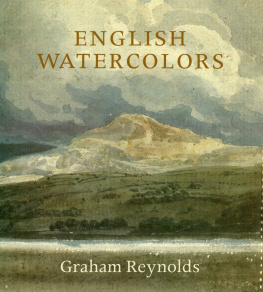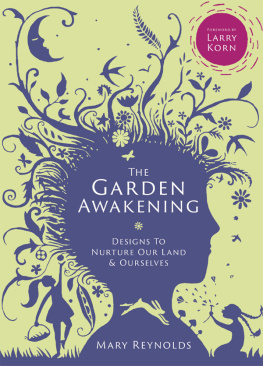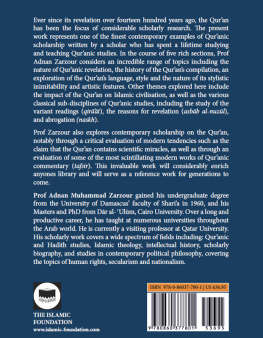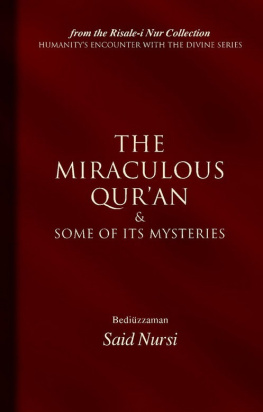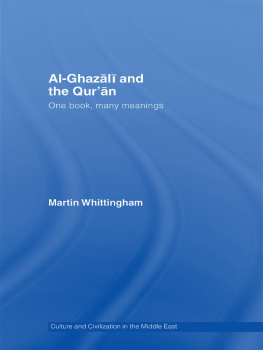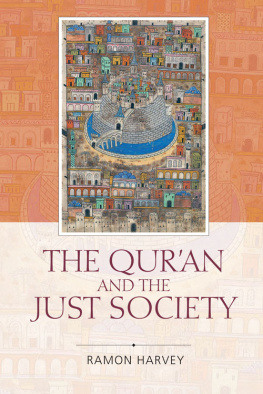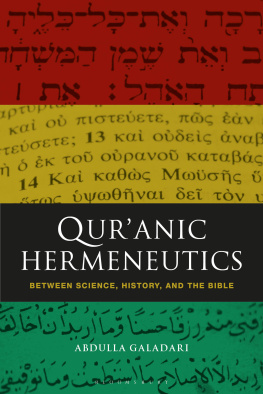Abbreviations
| BSOAS | Bulletin of the School of Oriental and African Studies |
| CSCO | Corpus Scriptorum Christianorum Orientalium |
| EI2 | The Encyclopaedia of Islam , Second Edition, Leiden: Brill, 1954present |
| EQ | The Encyclopaedia of the Qurn , ed. J. McAuliffe, Leiden: Brill, 2001present |
| FV | A. Jeffery, The Foreign Vocabulary of the Qurn , Baroda: Oriental Institute, 1938. Reprint: Leiden: Brill, 2007 |
| GAL | C. Brockelmann, Geschichte der arabischen Litteratur , Leiden: Brill, 193749 |
| GAS | F. Sezgin, Geschichte des arabischen Schrifttums , Leiden: Brill, 19672000 |
| GCAL | G. Graf, Geschichte der christlichen arabischen Literatur , Rome: Biblioteca Apostolica Vaticana, 1947 |
| GdQ1, 2, 3 | Geschichte des Qorns , 2nd edition, including T. Nldeke ber den Ursprung des Qorns (volume 1) and F. Schwally, Die Sammlung des Qorns (volume 2), Leipzig: T. Weicher, 1909, 1919; Reprinted with G. Bergstrsser and O. Pretzl, Die Geschichte des Koran-texts (volume 3), Leipzig: T. Weicher, 1938; reprint: 3 vols in 1, Hildesheim: Olms, 1970. (1st edition, including only volume 1: T. Nldeke, Geschichte des Qorns , Gttingen: Verlag der Dieterichschen Buchhandlung, 1860) |
| JAOS | Journal of the American Oriental Society |
| JNES | Journal of Near Eastern Studies |
| JQS | Journal of Qurnic Studies |
| JRAS | Journal of the Royal Asiatic Society |
| JSAI | Jerusalem Studies in Arabic and Islam |
| JSS | Journal of Semitic Studies |
| MIDEO | Mlanges de lInstitut dominicain dtudes orientales du Caire |
| MUSJ | Mlanges de lUniversit Saint Joseph |
| OC | Oriens Christianus (serial) |
| QHC | The Qurn in Its Historical Context , ed. G.S. Reynolds, London: Routledge, 2008 |
| SI | Studia Islamica |
| ZDMG | Zeitschrift der deutschen morgenlndischen Gesellschaft |
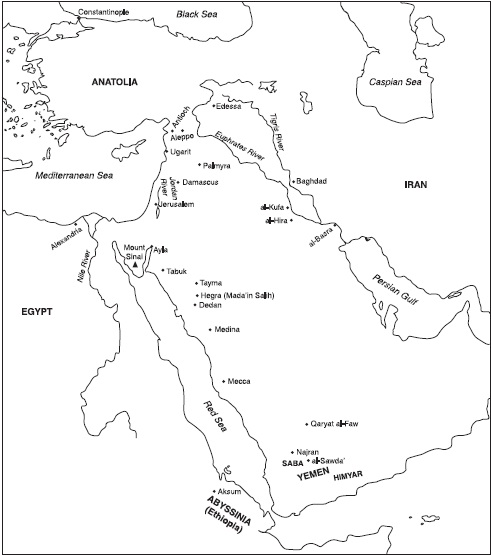
Locations cited in the present volume.
Acknowledgements
The present book, and the larger initiative in Qurnic studies of which it is a part, have been made possible by the generous support of the University of Notre Dame. The University sponsored the first Notre Dame Qurn conference in 2005, which led to the publication of The Qurn in Its Historical Context (Routledge 2008). Subsequently the Institute for Scholarship in the Liberal Arts at Notre Dame awarded us a Small Research and Creative Work grant to support the translation of that work into Arabic. The second Notre Dame Qurn conference (1921 April 2009), which lies behind the present work, was supported by a Henkels Lecture grant, also from the Institute for Scholarship in the Liberal Arts at Notre Dame. The Universitys regular financial support is an expression of confidence which I do not take lightly. I am particularly grateful for Notre Dames vision that the strengthening of its commitment to the Catholic tradition should coincide with the meaningful study of another.
I would also like to thank my colleagues in the Department of Theology at Notre Dame. They have supported my work on the Qurnic studies initiative and offered numerous insights on how to approach religious texts, and how to think about the intersection of critical scholarship and belief. I am particularly grateful to John Cavadini, former chair of the Department of Theology, who never failed to help me when I needed it most, and who set an example for me and many others with his wisdom and his generosity.
Joshua Robinson was my assistant during the 20089 academic year and worked with great efficiency and professionalism throughout our preparations for the 2009 Qurn conference and during the conference itself. Hannah Hemphill was my assistant during the 200910 academic year, during which time she carefully read and edited the papers in the present volume, while offering valuable suggestions for its improvement. I am also grateful to Joseph Khalil, who compiled the two indices of this book in a precise and professional manner. Cheron Price, administrative assistant in the Department of Theology, has helped me with numerous matters over the past several years in her infailingly patient and diligent manner.
My doctoral advisor at Yale University was Gerhard Bwering, and he has continued to be an important source of support and insight since I have joined the faculty at Notre Dame. I have also benefited from the support of David Bertaina of the University of Illinois (Springfield), who has helped me improve this and other publications with his judicious comments. I am grateful to Prof. Abdolkarim Soroush, who led an extraordinary roundtable at the conclusion of the 2009 Qurn conference, during which he made the wise proposal that we translate the works of the Notre Dame Qurn initiative into Arabic.
I must add that the work of Routledge Press and its affiliates has been excellent. I am grateful to Joe Whiting, the editor of Middle Eastern and Islamic Studies at Routledge, to Prof. Andrew Rippin, the director of the Routledge Studies in the Qurn series (who has been a faithful source of guidance throughout this project), and to the talented team of editors and typesetters who have dedicated themselves to this work. The two anonymous outside reviewers of this work both submitted detailed reports which allowed us to improve it substantially, and to them I am likewise grateful.
Finally I would like to thank my family for their love and support: my parents and step-parents, my lovely wife Lourdes, and my children Luke, Emmanuel, and Theresa.
Contributors
Nar Hamid Abu Zayd (19432010) was a long-time professor at Cairo University and later the inaugural Ibn Rushd professor at the University for Humanistics, Utrecht (The Netherlands). Among his many influential works are, in Arabic, Al-Ittijh al-aql f tafsr (The Rational Trend in Exegesis; 1982) and Mafhm al-na (The Concept of the Text; 1990), and in English, Rethinking the Qurn (Humanistics Press 2004).
Waleed Ahmed completed a BA and an MA in Near and Middle Eastern Civilizations at the University of Toronto. He is currently a PhD candidate at the Seminar fr Arabistik und Islamwissenschaft, Georg-August-Universitt Gttingen. His thesis work is on Qurnic narratives in Muslim exegesis and his research interests include the literary analysis of the Qurn, Qurnic exegesis, and adth criticism.
Emran El-Badawi completed his PhD in the Department of Near Eastern Languages and Civilizations at the University of Chicago and is Assistant Professor of Arabic Language and Literature in the Department of Modern and Classical Languages at the University of Houston. His dissertation is entitled Sectarian Scripture: The Qurans Dogmatic Re-Articulation of the Aramaic Gospel Traditions in the Late Antique Near East. His other publications include Divine Kingdom in Syriac Matthew and the Quran, Journal of Eastern Christian Studies 61 (2009), 142.
Fred M. Donner is Professor of Near Eastern History in the Oriental Institute and Department of Near Eastern Languages and Civilizations at the University of Chicago. His most recent book is Muhammad and the Believers: At the Origins of Islam (Harvard 2010).
Reuven Firestone is Professor of Medieval Judaism and Islam at Hebrew Union College in Los Angeles. His publications include Journeys in Holy Lands: The Abraham-Ishmael Legends in Islamic Exegesis (SUNY 1990) and Jihad: The Origin of Holy War in Islam (Oxford University Press 1999).

